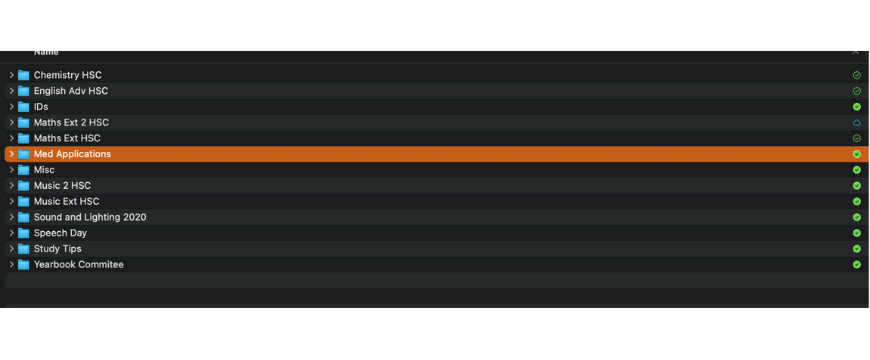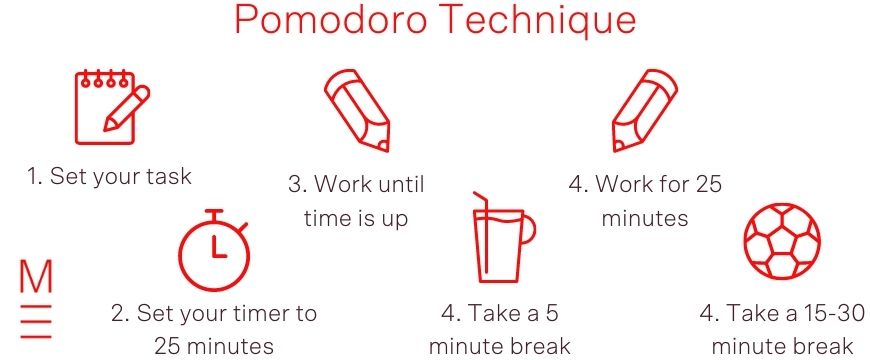Welcome to Matrix Education
To ensure we are showing you the most relevant content, please select your location below.
Select a year to see courses
Learn online or on-campus during the term or school holidays
Learn online or on-campus during the term or school holidays
Learn online or on-campus during the term or school holidays
Learn online or on-campus during the term or school holidays
Learn online or on-campus during the term or school holidays
Learn online or on-campus during the term or school holidays
Learn online or on-campus during the term or school holidays
Get HSC Trial exam ready in just a week
Get HSC exam ready in just a week
Select a year to see available courses
Science guides to help you get ahead
Science guides to help you get ahead
Are you struggling to stay ahead of school, your UCAT, extra-curricular activities, and maintain a social life? Well, in this article, Glenn shares some actionable hacks that will help you balance your life!

Join 75,893 students who already have a head start.
"*" indicates required fields
You might also like

Join 8000+ students each term who already have a head start on their school academic journey.
In this article, Sydney Technical and Matrix graduate, Glenn, shares his advice for balancing the HSC, UCAT, and a social life to achieve a 99.10 ATAR and rank in the 96th percentile for the UCAT.
Hi everyone!
My name is Glenn Gao and I graduated from Sydney Technical High School with an ATAR of 99.10.
I’m currently studying for a Bachelor of Medical Science/Doctor of Medicine at the University of Newcastle. Of course, my dream career is to be a Doctor. I am aiming, hopefully, to be a part of the Royal Flying Doctor Service.
This is because, despite it being a lower mark compared to my other subjects, I was never an English/Literature orientated person.
I was very shocked to find out that I managed to get a Band 6 in English after doing lots of practice essays and late-night quote memorisation sessions.
However, with applied practice, I managed to achieve a 96th percentile which helped me with my medicine entrance in several universities.
Medicine was a highly competitive degree to get into. What I realised when I was set on my career goal was that you would be competing with some of the most talented people from around Australia.
This meant that I needed to achieve a top mark in the ATAR and UCAT, and build myself as a person to make a personality shine through the interview process.
How did I manage to this?
Whether you are planning to get into a highly competitive degree, or aiming for that high ATAR, you need to be organised throughout HSC.
This means that no more all-nighters from your junior years, no more last-minute assignment hand-ins, and no more procrastinating (which I know we all love to do!).
1. Maintain digital notes and folders
One of the most effective ways for me to remain organised was digital notes and folders.
I would often scan important class-material and sort them onto OneDrive or cloud accounts, synced across all my devices so I can access them whenever I wanted.
That way you won’t lose your notes and be tempted to chuck them in the bin the minute you get home.
Not only that, but it means you could set reminders on a digital calendar, that could be easily synced across your phone, laptop and even a smartwatch.

2. Continually add summaries from different resources to your digital notes
Of course, just creating the folders themselves won’t magically mean that your grades will improve. You have to start using them!
I usually wrote summaries of the Matrix textbooks before major exam periods as a ‘consolidation’ study.
I kept digital notes that I continuously added throughout time, as well as past papers, textbooks, and essays.

Try Matrix for free!
Experience the Matrix advantage for yourself, risk-free. Book a free trial and join a class!
3. Balance your subjects based on strengths and weaknesses
The last thing would be to balance your subjects. Find out what is your weakest/strongest subject, and what needs to be prioritised.
For example, English was often my weakest subject after every exam period. On the other hand, Maths was my strongest and I only need to study a little to do very well.
After you factor in your other subjects, and mine ended up with an approximate study ratio of 40:30:20:10 for English, Maths, Chemistry, Music.
Essentially, you need to “triage” your studies, and see what is being prioritised and adapt accordingly.
This will ensure that you will have plenty of time to study for all your exams, especially if your courses are content heavy!
When you study, you need to have ‘quality study time’.
This doesn’t mean going on your phone and alternating between the homework and Facebook every 5 minutes. Your brain would not be able to absorb the content and recall the things you are learning.
Sure, it might seem tempting to look at your phone to find out what meme your friend sent you, or to browse Facebook for some quality clips from your favourite TV shows.
You might be staring at the textbook, and the textbook stares back at you.
But to stay focused, you need self-control.
Clear your mind, think about what you are learning, and really dig deep.
This is often one of the essential skills to achieving that high ATAR, and often benefits you even in University when you are required to do plenty of self-directed learning.
Conversely, it doesn’t mean that you should stare at the same page for 8 hours straight trying to force that information into your head.
Take a break and refresh your mind. Perhaps get a cup of tea, coffee, or your favourite snack.
The HSC isn’t all about studying, and in the wider aspects of things, it is actually only one component of many.
Not only do you have to study during HSC, but you need to make sure you keep some time for yourself.
Socialise with your friends, keep up some hobbies, or even go to the gym.
It’s impossible to study from 4-10pm every weekday. In fact, to perform your best, you need to ‘stop studying’ once in a while.
I was personally involved in my school community a lot.
I was part of the school leadership team, taking up responsibilities in school to build myself as a person. I also kept my hobbies such as Piano or Air Force Cadets. I would visit the gym at least twice a week.
It might seem hard to balance all of this at once, but refer to Step 1: Staying organised!
It is very important you find your way of studying. Most importantly, you need to take breaks in between study sessions.
Our brains are simply not built for 10 hours of constant study.
Remember that HSC is a marathon, not a sprint.
This means you should not set unrealistic expectations on what you can achieve (trying to cram all that content in a 10-hour session is not happening).
Whatever type of study technique you choose, you will need to stick to it for the rest of your HSC studies, in order for you to really see the progress.
Depending on the person, some people might like the standard ‘Pomodoro technique’.

I used a modified method, as I lacked the self-control to get back into the work after a 5-minute break.
Instead, I studied for around 90 minutes, with a 30-minute break afterwards.
This gave me ample time for a ‘long’ break after a long period of concentration, and often I could relax my mind by taking a powernap, or eating snacks, or a quick browse through social media.
Not only that, but I would often learn my materials ahead of class. I attended the Matrix Chemistry Holiday course, and I found that it was perfect in getting me ahead of my work.
This 2-week intensive crash course meant I was exposed to all the topics in one go.
Throughout the term, I treated classwork as a ‘refresher’, similar to studying with ‘spaced repetition’.
The Matrix textbook meant I was able to easily summarise course content and re-learn concepts that I had forgotten over the weeks.
It freed up plenty of time, and meant I could focus on my weaker subjects (English) by grinding those essay questions and past papers!
There are tons of study techniques out there. Spend a week or so researching to see what would work for you.
With my UCAT exam and strategies, my strongest suggestion would be applied practice. This doesn’t mean mindless grinding for question types; the UCAT exam is a skills-based exam.
Instead, I would often:
Next, I would always try to simulate the real UCAT exam as much as possible with every mock exam, whether it may be:
It is essential that you start reducing your practice around a few days out from the UCAT exam.
Consolidate your studies by making summary points of key techniques and strategies you will use. This will allow you to retain as much of your ‘skills’ that you have built up.
Much like competing in sports, an all-out training workout the night before the big day means you will crash and burn.
By this point, you should be confident that you are ready with your practice, and go take a ‘chill pill’.
Watch a movie, go out with your friends and most importantly, have a good night sleep.
Looking back on it now, I think my biggest regret was that I became complacent nearing the end of my HSC journey.
Having constantly done plenty of applied practice and achieving dux internally, I felt that I was ready for the real HSC.
This meant that I started slacking off in some of my subjects after trials, which was my biggest mistake.
From this personal experience, my lesson to you all is that, if you’re not at the finish line, you have not finished the race.
Although you might think you are ready for the subject, your brain is constantly losing bits and pieces of information that you have learnt every second.
The only time you should really ‘relax’ is the night before the exam, as at that point it is too late to save anything. Get a good night’s sleep, and wake up the day of the exam feeling refreshed and get into the exam room pumped up and feeling confident that your studies will pay off!
Remember that the HSC is a marathon, and a classic example of the turtle vs the hare can easily catch you unguarded if you decide to slip for even a moment.
Written by Guest Author
We have regular contributions to our blog from our Tutor Team and high performing Matrix Students. Come back regularly for these guest posts to learn their study hacks and insights!© Matrix Education and www.matrix.edu.au, 2025. Unauthorised use and/or duplication of this material without express and written permission from this site’s author and/or owner is strictly prohibited. Excerpts and links may be used, provided that full and clear credit is given to Matrix Education and www.matrix.edu.au with appropriate and specific direction to the original content.